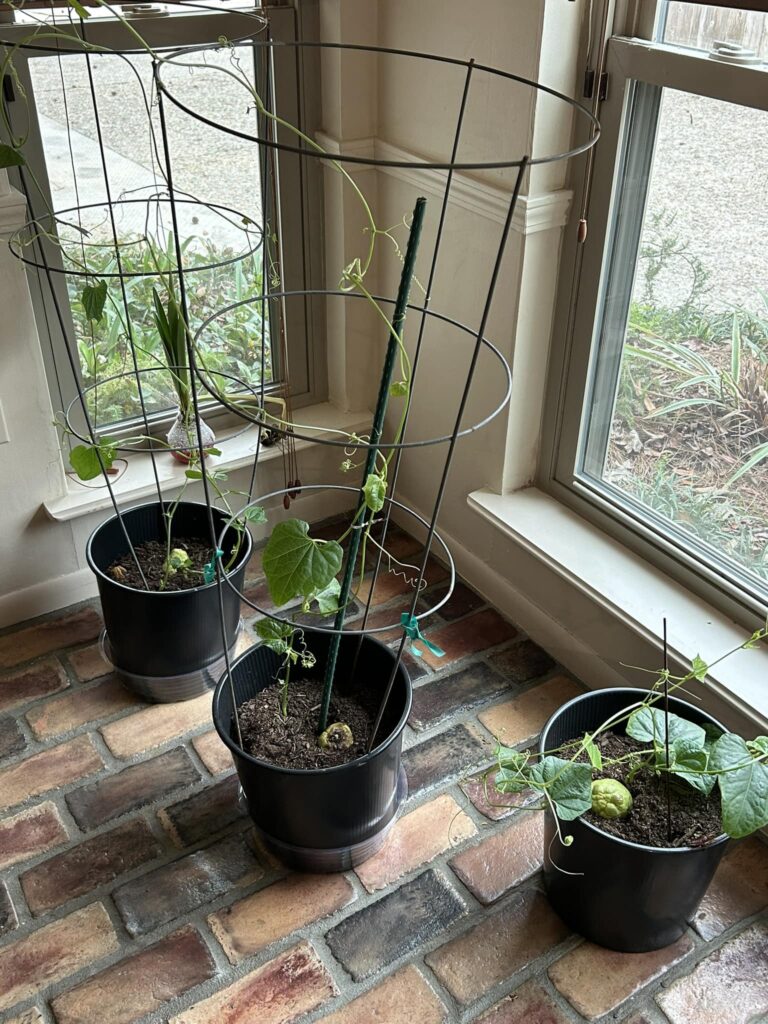Here’s a proven method of planting a spring sprout that you got too late for ground planting. Homer Baham told us about this simple method of container planting the mirliton for the summer and transplanting it into the ground in the fall. Then he mulches it for the winter and it comes back and produces a spring crop. Here’s what Homer writes:
“I have successfully done this many times, including last year after losing my 6-year-old vines in the heat dome. You should plant the sprouts in two-gallon pots and let them root and grow in the pots throughout the summer (they can be pruned back if necessary). After the 1st of September when the worst of the summer heat is over, plant them into a prepared raised bed garden or your garden. After they get over the transplant shock (1 to 2 weeks), they will start growing.
Feed them weekly with water-soluble miracle grow. Let them grow and vine wherever they will (you can use a tomato cage if necessary). They should show prolific growth. You will not get a fall crop but may see flowering. This allows the plants to establish a good root system. Before the first predicted fall frost, cut them back to 4 to 6 inches and cover them with 12-14 inches of leaves. ( I put an inverted plastic flower pot over them so I can find them later without damaging them).
In January when we start getting warm days, uncover them and expose them to the sun and warm weather. Water them and feed them with Miracle-Gro. Be prepared to cover them back up in the event of frost or freeze but leave them exposed as long as no frost or freeze. You should see growth very soon. Let them vine and grow, caring for them as normal with regular feedings and adequate water. Stop feeding the plant in April and you see them flowering and setting fruit by May.
I have never missed getting some spring crop when I follow this procedure!”